As I begin to go through my notes for this blog, I see a lot of them written down over the years that I had planned to blog about but never got around to. My endeavour has been to be as authentic as possible; so I am sharing thoughts and ideas that have influenced my thinking over the years.
As I have stressed earlier, I am not a voracious reader of management and leadership material. Most of my learnings have been through personal experiences and observation. As is said by the sages, true learning is only through experience.
So, this time I thought I will take up an interesting thought. It’s about how leaders should have ‘thehraav’. There is no word for ‘thehraav’ in English, but it can be explained as a combination of stillness and depth.
So what does it mean to have stillness and depth? Let me try and explain it through the following three aspects.
- Patience
- Peace and
- Balance
Patience
Patience is the ability to endure a long wait calmly or deal with problems without frustration. It is accompanied with peacefulness and a calm nature.
Patience puts us in direct control of ourselves.
And there is no more powerful an aid to success then self-possession. When we are patient, we give ourselves time to choose how to respond to a given event, rather than get emotionally hijacked.
Patience enables us to analyze situations beyond their face value. It also gives us inner peace and the ability to keep smiling despite challenges.
Oftentimes, our patience gets tested on matters that would require us to pause, reflect, and hold out. It’s not always easy being patient, which is why it’s highly regarded as a “virtue.” Those who choose patience when faced with difficult moments are more likely to make rational decisions, have better relationships, and be more peaceful within.
In today’s fast paced life, we have become accustomed to instantaneous results and we find the best “shortcuts” or “hacks” to get ahead. And this modern phenomenon makes us more prone to impatience.
We struggle with patience when we are unwilling to wait for things or people. Impatience can often lead to anger, frustration and many other problems;
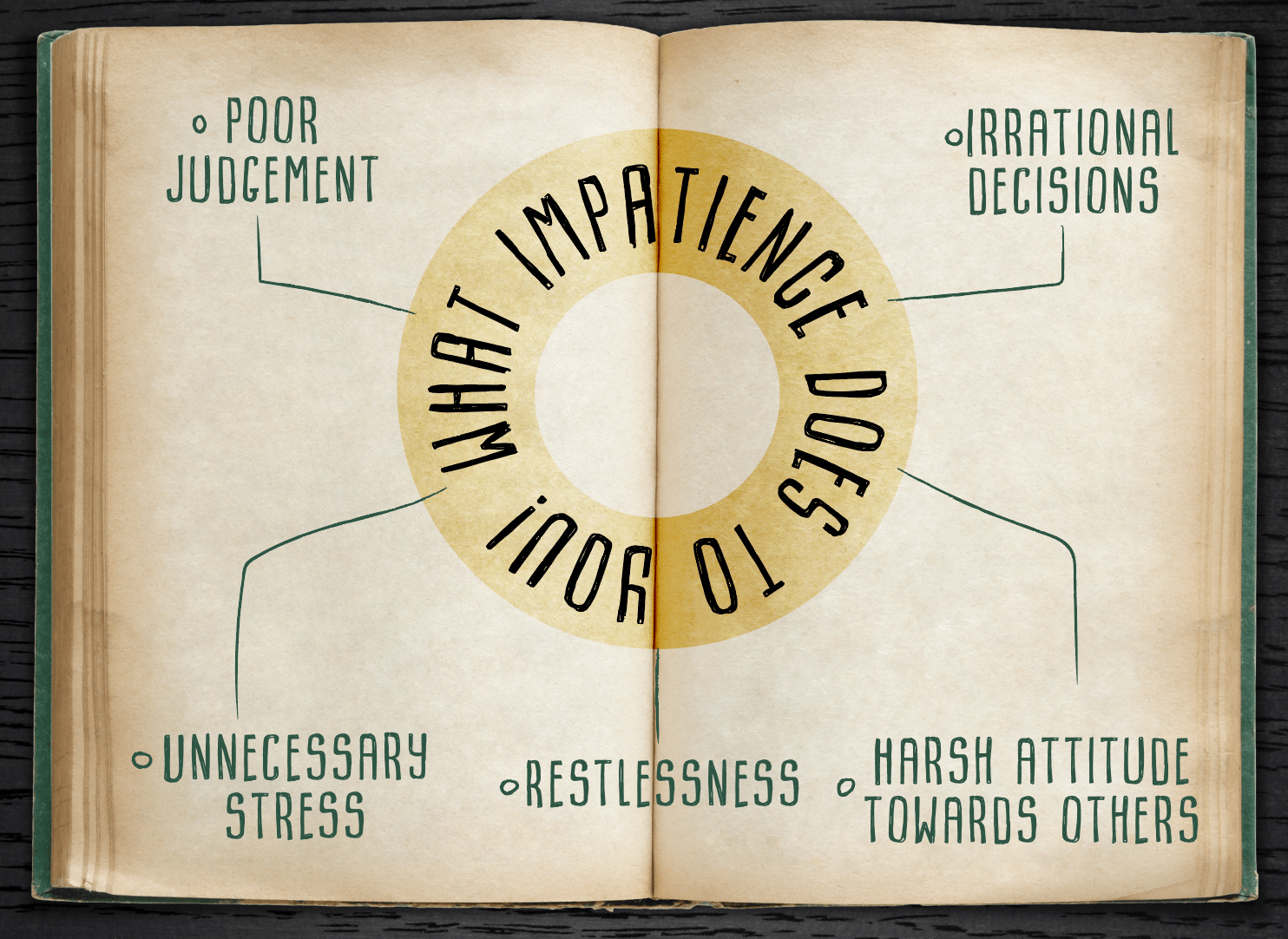
Patience is a quality often lacking among today’s leaders.
Society expects them to take action quickly and decisively. People first demand action. Then they demand results. The greater the crisis, the greater the impatience.
But a true leader recognises that patience enables them to take stock of the situation, to understand what is required, and wait while they build the capacity to take appropriate and effective action.
By demonstrating patience, leaders reinforce the importance of focusing on the long-term outcomes. It doesn’t mean ignoring the interim milestones or short-term deliverables. It does mean keeping them in context.
Many tasks associated with leadership require patience (e.g., strategic planning, negotiations, people development, program management, etc.). The bigger the issue and the longer the planning horizon, the greater the patience required to remain committed.
There are a few tips that have come in handy to me personally, which have helped instil patience in me;
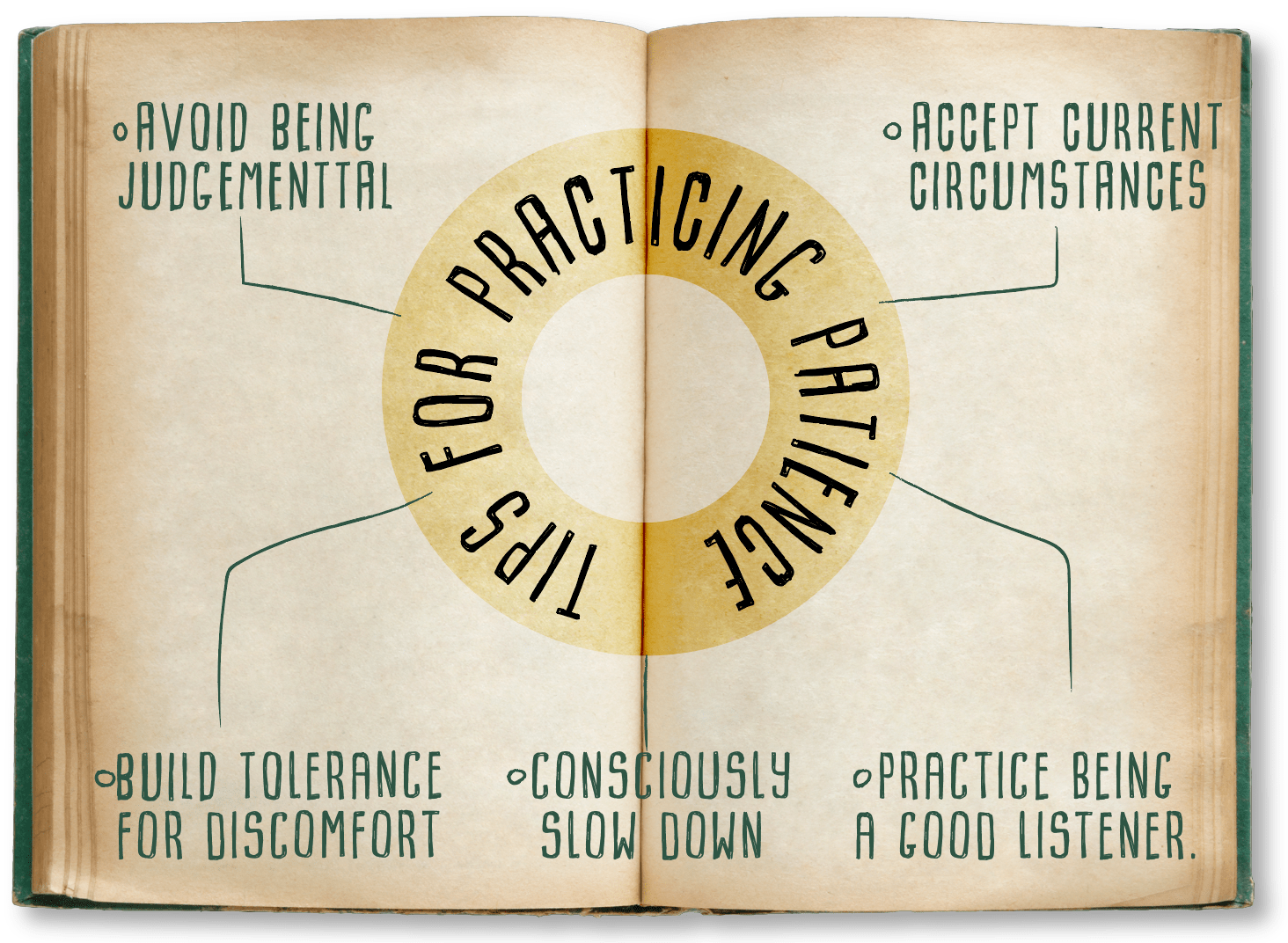
Patience has contributed to many great leadership successes.
Benjamin Franklin’s failed negotiations with the British to avoid the American Revolution and his successful negotiation with France to support the war were both great tests of his patience. Both required years of hard work and sacrifice, but in the end, they were instrumental in American independence. Gandhi demonstrated extraordinary patience in working towards a free and independent India. For more than thirty years, he worked, never varying from his commitment to non-violence. His patience resulted in a free India.
Many encouraged Franklin and Gandhi to give up, but their patience enabled their success. Franklin and Gandhi recognized that they must work and wait for years before they could succeed.
Having discussed the importance of patience, let’s now move to
Peace
If you were to ask ten different leaders to name the most important quality a leader should possess, you’d get at least ten different answers.
Leadership is a fluid concept that is highly dependent on personality, timing, and circumstance.
There are, however, a few timeless qualities that I believe are essential to good leadership. In my experience, the most universally applicable and important of these is inner peace.
When you find peace, urgent matters seem less pressing, and it becomes possible to see the previously hidden connections between people, places, and ideas.
Life seems more extreme in the absence of inner peace. The highs we experience become more sublime, and the inevitable lows we experience feel almost unbearable.
These ups and downs cause problems, both personally and professionally.
On a personal level, this volatility often leads to a pervasive sense of dissatisfaction; constantly searching for the next bigger, better thing to fill the hole in your life.
When it comes to your professional life, however, the impact is even more damaging.
Emotional leaders tend to make rash decisions, change course rapidly, and cause unforced errors. Instead, leaders must learn the art of casual detachment to not only survive, but thrive.
Leaders who possess inner peace, or at least strive to achieve it, offer a steady hand in uncertain times. Sure, things can and often do change rapidly in business, but calm, collected leadership can make those changes more palatable for everyone involved.
As leaders, we are almost always our own worst enemies. We sabotage our chances for success by giving in to the whims of our emotions.
Situations become personal, and we react not as mindful adults but rather as petulant children.
Without a strong sense of inner peace, a leader cannot offer a steady hand in difficult situations, and without that source of stability, organizations cannot survive.
It may sound cliche to talk about inner peace, but you can’t escape it. The connection to the “other”—something bigger than yourself—is central to the human experience and leadership in general. And the benefits of inner peace are many;
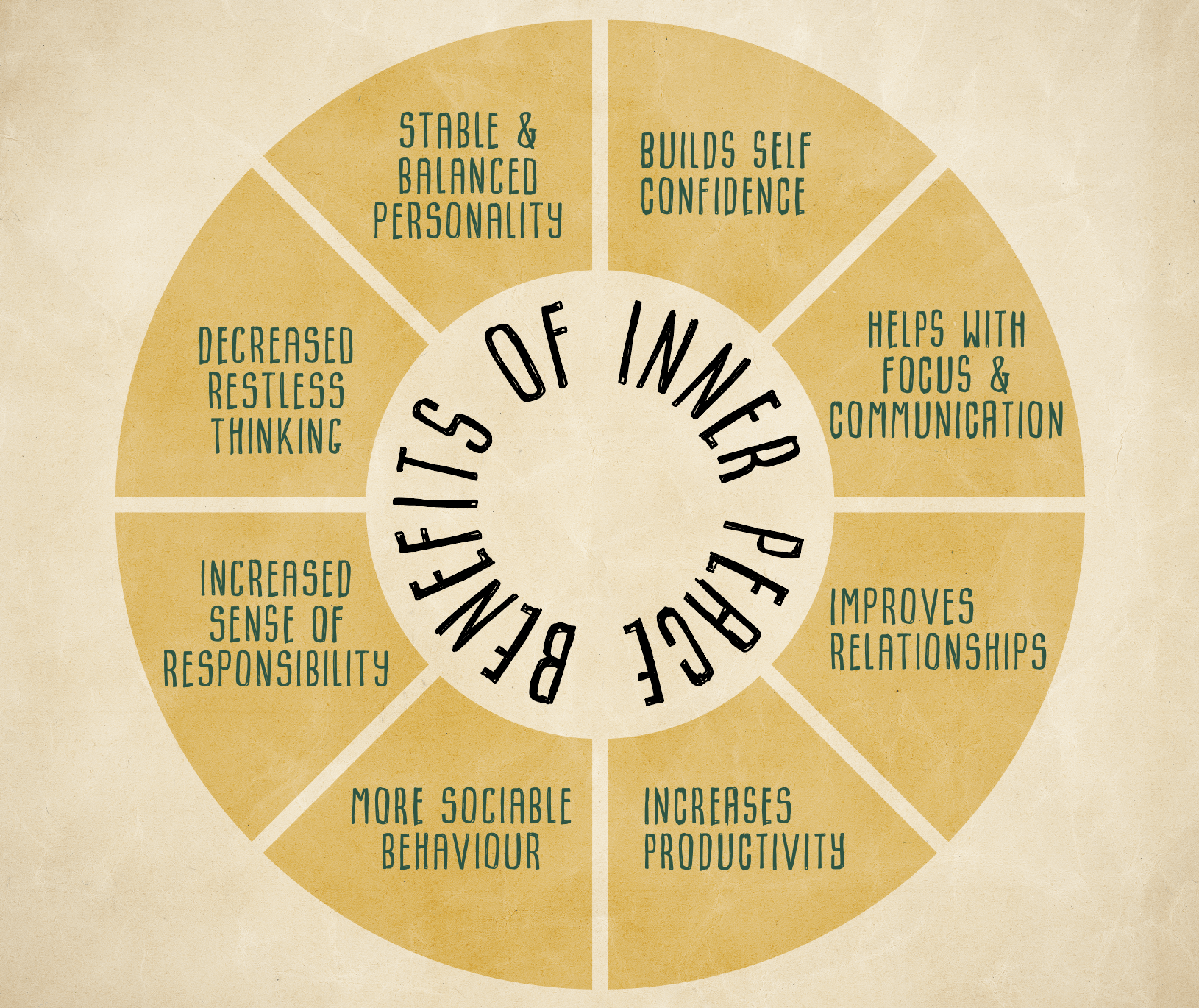
We usually come across two kinds of leaders;
One who puts us at ease and,
One who creates restlessness and panic…
While there is a lot of pressure on leaders to deliver, the ability to create a sense of urgency without creating panic takes fine balance. And we all know that it is scientifically proven that the best work happens when we are calm.
After all a seed grows into a plant only when the soil is calm; if the soil was shaking the plant can never become a tree.
We tend to radiate our inner qualities and they affect those around us; so peace begets calm while restless urgency begets panic.
It’s really leaders who radiate that calm, not only become successful but also gather huge following. Take India’s captain calm, Dhoni and how that one quality has made him so famous.
And finally let’s discuss the one aspect which is one of the most important,
Balance
Balanced leadership requires continuous, delicate adjustments to maintain homeostasis in an organization. Balance is stressed in every aspect of our lives — from learning to ride a bike to eating a balanced diet. It should be no different in leading an organization. We’ve all come across a person who had no life outside of his job. At the office by 6 am, never home before 10 pm. Working those hours is a personal choice, but a leader must be cognizant that his choices affect the lives of everyone in the organization.
Balance is critical to good leadership and essential for a healthy organization. If there is no push to get the job done, the organization fails. At the same time, if the culture is such that everything outside of work is sacrificed due to long hours, the people will fail just as quickly. The short-term gains will quickly give way to an exhausted team and little to no performance.
If the team needs to work harder due to an impending challenge, the leader can press the accelerator to increase output. Once the challenge is overcome, the leader can reduce the pressure to give the team a much-needed break. The key is finding that balance between the two extremes.
Balance applies to many areas within an organization. Here are just a few to consider:
Mission vs. People
A leader should balance the work for his people, for they are his most precious resource. There are times which demand extra work from the team, but if that continues for too long then he will have an exhausted team which will under perform. He needs to keep an eye on the horizon and forecast these surges and give the team time to rest as well. With a balanced approach like such the team will be ready to press the accelerator when needs arise.
Controlling vs. Hands Off
A good leader must balance between control & delegation. There are times when control is important; for example when instituting organisational change. The leader must take charge and direct the team in what has to be done. But with daily activities, the leader must delegate & empower the team to take action. Trust them, empower them and let them run with it. A good leader learns to exercise each technique when appropriate.
Firmness Vs. Flexibility
A piece of advice I once received upon assuming leadership of an organization: “Fire someone within the first week!” Though a bit extreme, but the intent is valid. A leader must balance firmness against flexibility. In my experience, when starting a new leadership position, be firm — stressing adherence to agreed-upon standards, punctuality and performance initially sets high expectations with your team. As time progresses, it is much easier to back off and demonstrate flexibility when the situation dictates.
Balance changes with different circumstances. A leader must evaluate the situation and make a decision…each and every day. What worked yesterday may be inappropriate for today. Determining the appropriate balance to obtain the maximum performance from your team while keeping them motivated, energized and ready for the next challenge is the key to excellent leadership.
The most important components of balance are;
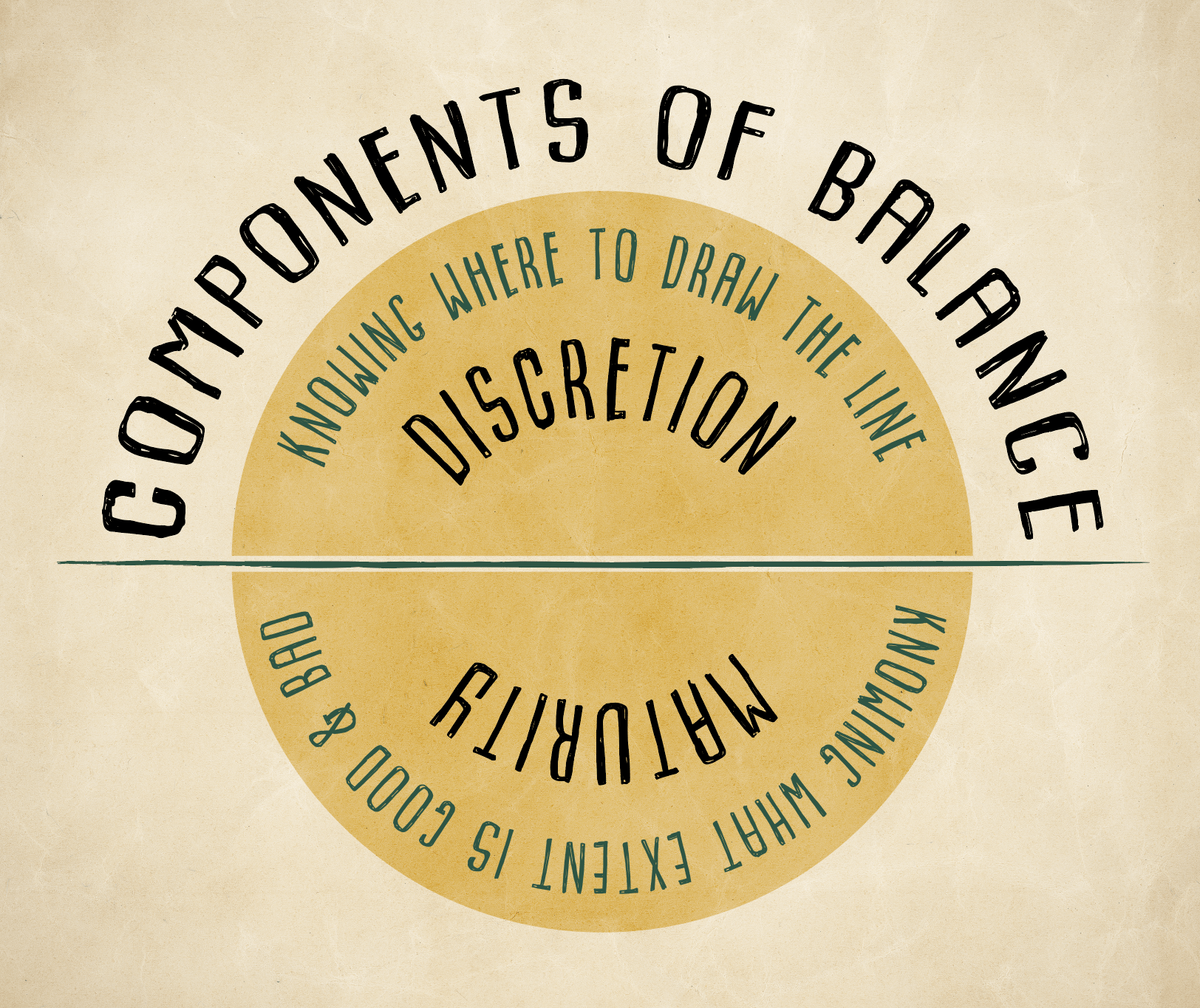
True leaders are those who not only know how to balance contradictions and extremes but who are also able to bring a sense of balance to people they work with. They are the ones considered as mature and wise.
In conclusion,
It’s a combination of patience, peace and balance that makes leaders have stillness and depth.
Please look at your own experiences and share with me in the comments section, what you think of leadership and balance (or thehraav).
RELATED TOPICS:#Apparel,Anindya Ray
Leave a comment
Our email address will not be published. Required fields are marked *




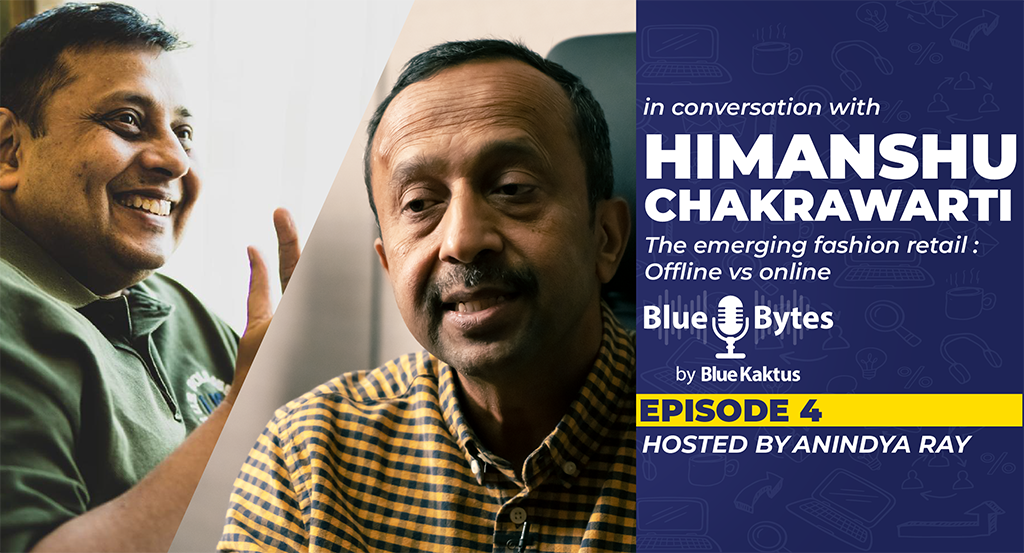


22 Comments
ShashidharMar 09, 2022 at 15:10 pm
Interesting and enjoyable article Anindya. The qualities you mention (patience, balance and peace) are an asset to any human being in any role. 'Count to 10', 'take a deep breath', 'intuitive knowledge', 'proper frame of mind' sound like pointers in the same direction. I suspect that 'leadership' was a by-product for Mahatma Gandhi (personified patience, balance and peace) who brought out the best in most of those around him.
RayanindyablogsMar 11, 2022 at 00:21 am
Thanks for your comments. Was waiting eagerly to hear from you.
Sanjay LalMar 09, 2022 at 07:27 am
You are leader because you are visionary, one does not become leader after occupying the senior management position. Leadership is about focusing on a good mix of culture, strategy and leadership rather than on operational efficiency. Also I would say today's leaders do not know how to fill the gap between strategy and execution. This has been seen in apparel sourcing world where leaders only strive for low costs at a cost of environment, quality, etc. Apparel does not need gyan but a vision and execution vision.
RayanindyablogsMar 09, 2022 at 07:59 am
Interesting thought Sanjay. Maybe a topic for a future blog. Thanks
Swati BijlaniMar 08, 2022 at 08:55 am
Very well put out Anindya. Balance, Patience and peace. The 3 most important ingredients for life both professionally and personally. Honestly in any situation if one is peaceful he/she can bring out the best to resolve any issue.
RayanindyablogsMar 08, 2022 at 18:41 pm
Thanks Swati
Pradyoth VarrmaMar 07, 2022 at 11:36 am
Wow wonderful article. True in this fast paced work culture coming up in these modern times these above said great virtues are lost in the leadership of today.
RayanindyablogsMar 07, 2022 at 20:14 pm
Thanks Pradyoth
Sanjeev SuryakumarMar 07, 2022 at 10:27 am
Enjoyed reading the blog, very engaging with lots of practical experiences which we all as leaders can relate too. I personally could relate to the part of starting with firmness and then you can backoff any time. Yes, in many situations we need to be firm, but we tent to be soft to build relationships and then it may becomes challenging to change our stance.
RayanindyablogsMar 07, 2022 at 20:16 pm
Thanks Sanjeev
Suman SahaMar 07, 2022 at 10:19 am
Very well articulated thoughts. I think the key question to examine is what is the true job of a leader. Is he or she a super hero having all the answers to save the world or they are someone who creates an environment where people can be their best versions. An atmosphere where candour is safe. Such environment wil have conflict but they will ne conflict of ideas because every idea needs to go through the crucible to assure everybody that it is going to add value. What we normally see as examples of bloated ego, impatience and very little stomach for failure. Aggression delivers dysfunction and leads to waste. Everytime. That's why most of the organizations stay mediocre.
RayanindyablogsMar 07, 2022 at 20:15 pm
Wow! Well said Suman, so true. Thanks
Abir BasuMar 06, 2022 at 21:53 pm
The two leaders defined ...I had the amazing fortune to work with a leader who puts u at ease..and that brought out the best in me..sir it was a experience working with u..
RayanindyablogsMar 06, 2022 at 22:00 pm
Thanks Abir
Govind ShrikhandeMar 06, 2022 at 11:27 am
Well written Anindya. Yes these 3 Personal Characteristic's are extremely Important. I would also like to add one more- Humility. These 4 Dimensions make a Leader Human and Reachable at all times. He Can Fail at times , but will surely come back stronger . And you can see why Dhoni is regarded so high on leadership - when CSK made a strong comeback after being banned for 2 Years ..
RayanindyablogsMar 06, 2022 at 14:20 pm
Thanks so much for that input. Definitely ‘humility’ is a virtue to be added to the list.
VijeyMar 06, 2022 at 11:12 am
excellent insights and very impressive thought process sir,,,,
RayanindyablogsMar 06, 2022 at 14:21 pm
Thanks Vijey
Mark sathiabalanMar 06, 2022 at 09:46 am
Excellent thoughts Anindya. In order to lead one must be in control over himself first.
RayanindyablogsMar 06, 2022 at 10:26 am
Thanks Mark, the very essence of the blog
Prashanth HVMar 06, 2022 at 09:15 am
Agree with most of your thoughts and experiences. In the recent years, aggressive leadership is considered as requirement, which new generation supports. But in the long run patience and balanced approach will give the success. When you have compared Dhoni for patience, Virat may be considered as an aggressive leader. Virat may have got instant success, but couldn't sustain for long. On a flip side patient people would also be considered as inactive/laid back. They may have to go through a lot of criticism from one side. It is difficult test the patient people have pass through, they won't have instant success or gratitude. I would tell they are not sprinters but Marathon runners.
RayanindyablogsMar 06, 2022 at 09:20 am
Thanks Prashanth. Interesting about patient people being considered laid back. That’s where the balance and context management comes in and the wisdom is in managing long term and short term issues differently.